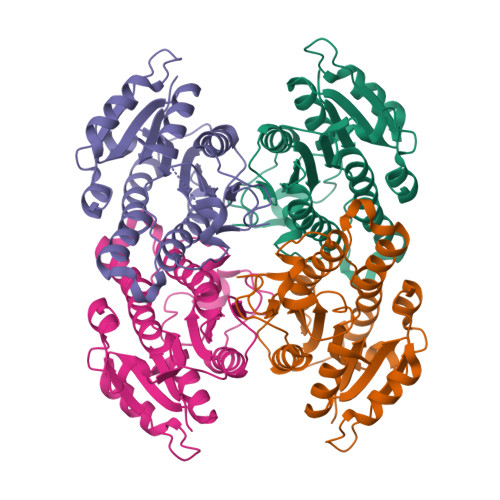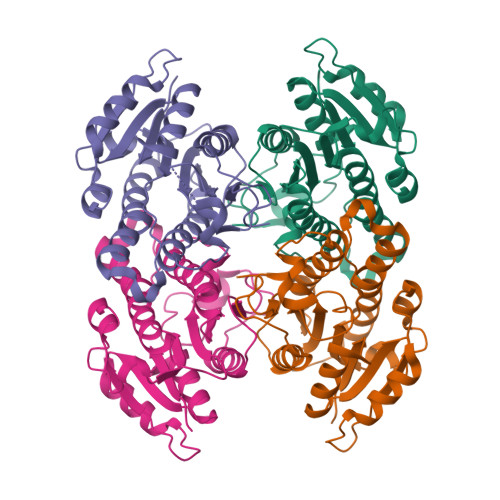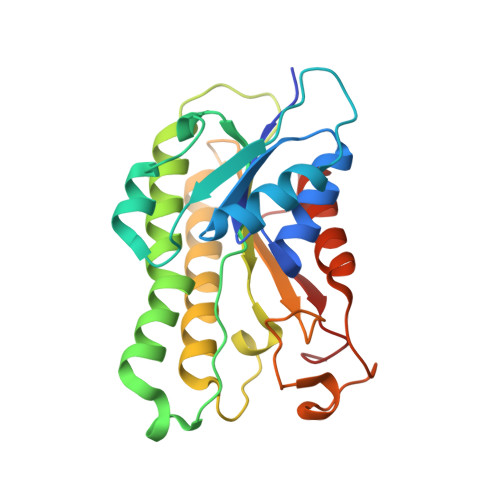Approaching boiling point stability of an alcohol dehydrogenase through computationally-guided enzyme engineering.
Aalbers, F.S., Furst, M.J., Rovida, S., Trajkovic, M., Gomez Castellanos, J.R., Bartsch, S., Vogel, A., Mattevi, A., Fraaije, M.W.(2020) Elife 9
- PubMed: 32228861
- DOI: https://doi.org/10.7554/eLife.54639
- Primary Citation of Related Structures:
6TQ3, 6TQ5, 6TQ8 - PubMed Abstract:
Enzyme instability is an important limitation for the investigation and application of enzymes. Therefore, methods to rapidly and effectively improve enzyme stability are highly appealing. In this study we applied a computational method (FRESCO) to guide the engineering of an alcohol dehydrogenase. Of the 177 selected mutations, 25 mutations brought about a significant increase in apparent melting temperature (Δ T m ≥ +3 °C). By combining mutations, a 10-fold mutant was generated with a T m of 94 °C (+51 °C relative to wild type), almost reaching water's boiling point, and the highest increase with FRESCO to date. The 10-fold mutant's structure was elucidated, which enabled the identification of an activity-impairing mutation. After reverting this mutation, the enzyme showed no loss in activity compared to wild type, while displaying a T m of 88 °C (+45 °C relative to wild type). This work demonstrates the value of enzyme stabilization through computational library design.
Organizational Affiliation:
Molecular Enzymology Group, University of Groningen, Groningen, Netherlands.


















